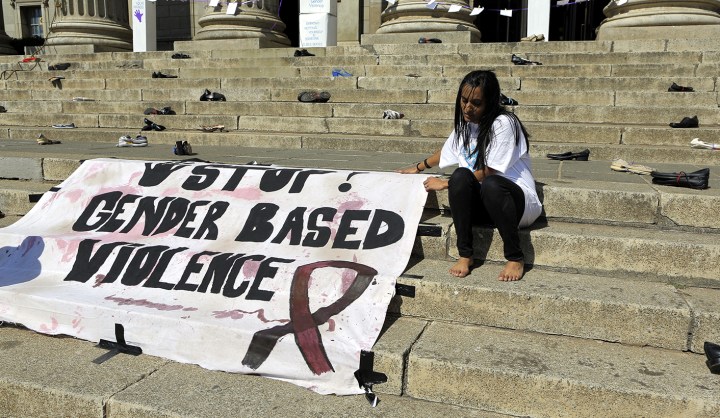RAPE CULTURE
Parliament: Standardised policy for dealing with campus gender-based violence on the cards

Grappling with rape and sexual assault on campuses around South Africa, the Department of Higher Education and Training is working on developing a standardised framework for gender-based violence which will be implemented at all universities across the country.
A standardardised policy framework for dealing with gender-based violence at all higher education institutions should be released before the end of 2018.
This was revealed during a meeting between the department, MPs and the SA Human Rights Commission on Wednesday in Parliament.
After MPs asked the human rights commission what kind of investigations would be done about allegations of students being raped and sexually assaulted on campuses, the Department of Higher Education and Training revealed that the department is working on plans that would see a standardised policy on gender-based violence implemented across universities in South Africa.
Professor Andre Keet from the department’s Transformation Oversight Committee said the proposed framework would be revealed “later in the year”.
Universities and the government have come under increasing pressure over the past few years to deal with gender-based violence on campuses.
In 2016, then (and subsequently disgraced) deputy minister Mduduzi Manana announced that the department had appointed a task team to address the issues at higher education institutes in SA. One of the task team’s objectives was to create a policy framework to understand existing policies and how they are applied, prior to the formation and adoption of a sector-wide sexual- and gender-based violence policy framework.
Reports of rape and sexual assault have featured in media headlines recently, especially after the #RUReferenceList went viral. The list features the names of alleged perpetrators of sexual attacks at Rhodes University. During #FeesMustFall protests in 2015, female activists called for rape culture at universities to be exposed. In October 2017, Nelson Mandela University was shut down after activists protested following the rape of two students on campus.
There are no set governmental frameworks for dealing with gender-based violence yet, leaving universities to set their own policies. EWN unpacked different universities’ sexual offences policy and what four universities are doing about it.
Gender-based violence on university campuses came up in Parliament on Wednesday after MP Belinda Bozzoli (DA) asked the commission whether they would investigate possible human rights violations faced by students who have been victims of gender-based violence.
The SAHRC was at Parliament to discuss their Report on Transformation at Public Universities in South Africa. The report that revealed universities had not sufficiently transformed between 1996 and 2016 with regard to race, gender, language, culture and disability.
“Inequalities, patterns of systematic exclusion, marginalisation and subtle forms of discrimination continue to persist in public universities,” said SAHRC commissioner Andre Gaum.
More needed to be done to ensure transformation was implemented, especially involvement from the Department of Higher Education and Training, said Gaum.
Gaum said new minister Naledi Pandor has written to the commission about some of the recommendations it had made, and admitted, “we acknowledge some progress has been made”.
MPs said that while the report highlighted the need for a transformation – they agreed progress has been made, particularly due to #RhodesMustFall, #FeesMustFall and #AfrikaansMustFall over the past four years. Bozzoli said these events had “shifted the ground to an extent”.
Universities need to reflect the lived realities of South African students, particularly those who come from disadvantaged communities, said Connie September, chairperson of the committee.
“You don’t find poor people at universities, you find poor people in South Africa,” September added.
The SAHRC’s report recommends that the department take a leading role in the transformation of institutions of higher learning; that universities offering interpreting services must take measures to include African languages equitably, and that universities should report annually on their state of transformation. According to Gaum, as the SAHRC is a Chapter Nine body, its findings are binding.
Gaum told MPs the SAHRC had committed itself to following up on numerous recommendations as set out in its 2018/2019 annual performance plan. The recommendations made in the 2016 report “will receive attention in this regard”, said Gaum. DM


















